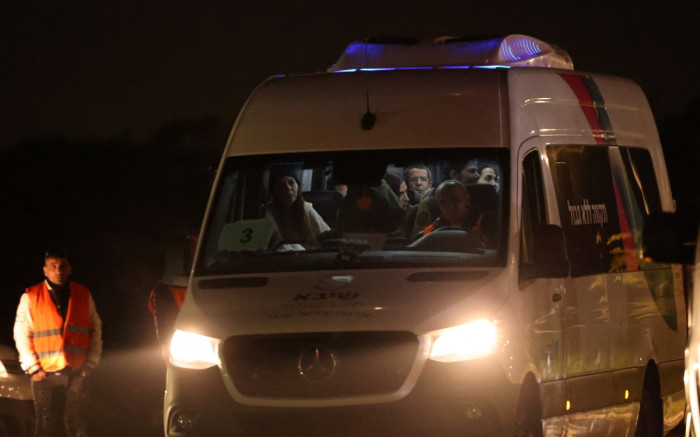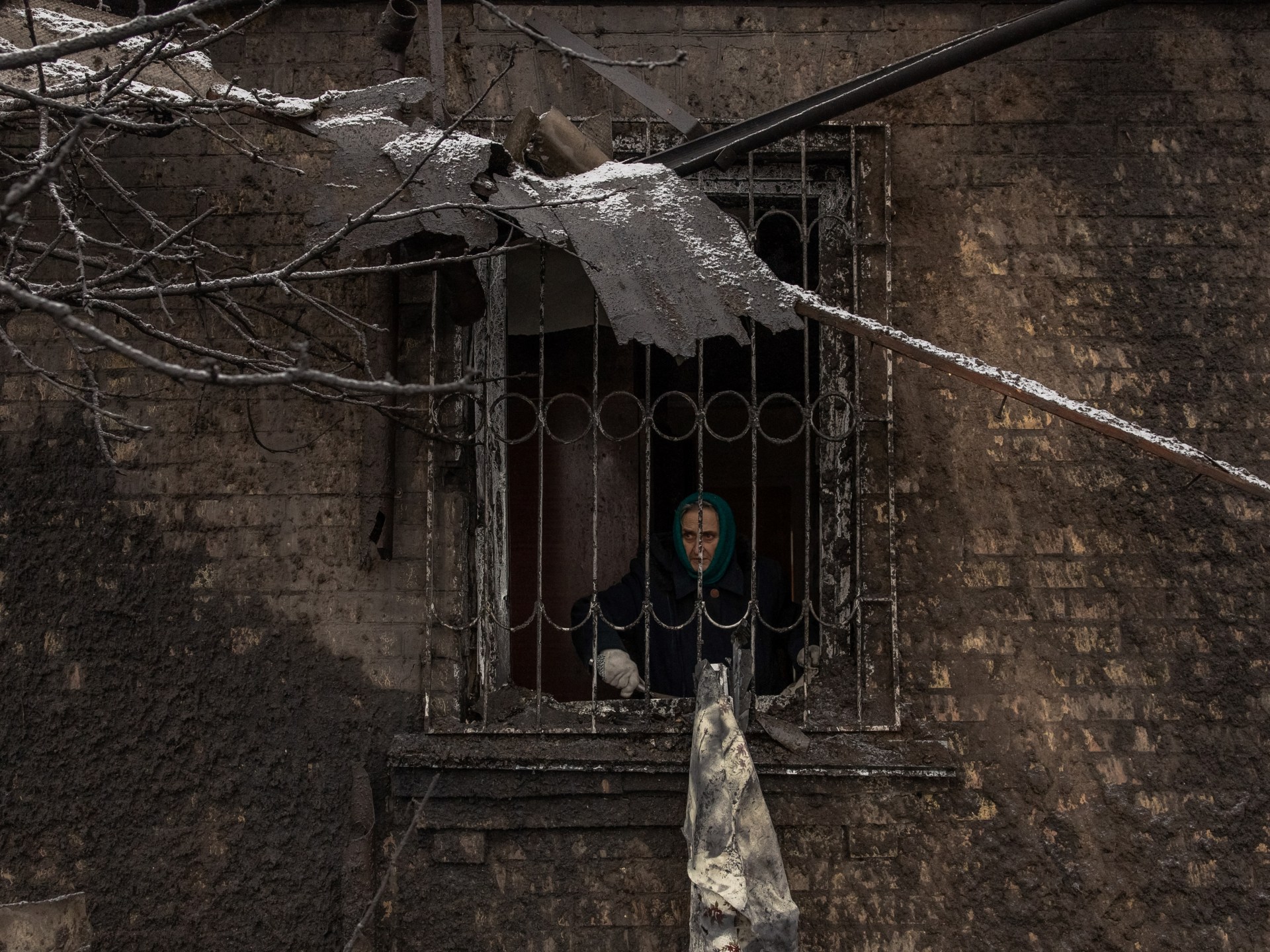
The announcement came hours after US Secretary of State Antony Blinken arrived in Israel on Wednesday evening and amid growing pressure for an extension of the pause.
Israeli hostages arrive at the Sheba medical center in Ramat Gan, Tel Aviv district, after their release by Hamas, November 30, 2023. Image: AFP
JERUSALEM – A ceasefire between Israel and Hamas was extended on Thursday shortly before it expired, both sides announced. The mediator Qatar reported that it would last for a day under the same conditions in which hostages were released in exchange for prisoners.
A few minutes before the pause in combat was due to expire at 0500 GMT, the Israeli military announced that the “pause in operations” would be extended.
“In view of the efforts of the mediators to continue the process of releasing the hostages and subject to the conditions of the framework, the operational pause will continue,” it said.
The Prime Minister’s Office then confirmed the extension, saying it had received a new list of hostages.
“A list of women and children was recently provided to Israel under the terms of the agreement and therefore the ceasefire will continue,” it said, without giving a time frame.
Hamas, meanwhile, said there was an agreement to “extend the ceasefire for a seventh day,” without providing further details.
It previously said Israel initially refused to extend the ceasefire after offering to hand over seven hostages and the bodies of three others.
Qatar, which led the ceasefire negotiations, confirmed that the pause had been extended by one day “under the same previous conditions.”
The announcement came hours after US Secretary of State Antony Blinken arrived in Israel on Wednesday evening and amid growing pressure for an extension of the pause.
According to Israeli authorities, fighting that began on October 7 when Hamas militants poured across the border into Israel, killing 1,200 people, mostly civilians, and kidnapping about 240, has temporarily stopped.
Israel’s subsequent air and ground assault in Gaza killed nearly 15,000 people, mostly civilians, and reduced much of the territory’s north to rubble, according to Hamas officials.
The ceasefire agreement provides for extensions if Hamas can release an additional ten hostages per day. However, both sides had previously warned that they were ready to resume fighting.
According to a message posted on its Telegram channel, Hamas’ armed wing called on its fighters to “maintain a high level of military readiness… in anticipation of a resumption of fighting if it is not renewed.”
And IDF spokesman Doron Spielman said troops would “very quickly move into operational mode and continue to pursue our objectives in Gaza” if the ceasefire were to expire.
“Permanent humanitarian ceasefire”
Ten more Israeli hostages were released overnight under the agreement, another four Thai hostages and two Israeli-Russian women were released outside the agreement.
A video released by Hamas showed masked gunmen handing over hostages to the International Committee of the Red Cross.
Among those released was Liat Beinin, who also has American citizenship and works as a guide at Israel’s Yad Vashem Holocaust Museum.
US President Joe Biden said he was “deeply pleased” by the release.
“This deal has brought significant results,” he said of the ceasefire.
Shortly after the hostages arrived in Israel, the country’s prison service said 30 Palestinian prisoners had been released, including prominent activist Ahed Tamimi.
Since the ceasefire began on November 24, 70 Israeli hostages have been released in exchange for 210 Palestinian prisoners.
Around 30 foreigners, most of them Thais living in Israel, were released outside the terms of the agreement.
Israel has made it clear that it views the ceasefire as a temporary truce aimed at releasing hostages, but there are growing calls for a longer break in fighting.
UN Secretary-General Antonio Guterres called for a “genuine humanitarian ceasefire” and warned that the people of Gaza were “in the midst of an epic humanitarian catastrophe”.
And China, whose top diplomat Wang Yi was in New York for Security Council talks about the violence, called for an immediate “permanent humanitarian ceasefire” in a position paper published Thursday.
‘EVERYTHING IS GONE’
The release of the hostages brought joy but also pain. Families waited anxiously each night to find out whether their loved ones would be released and learned harrowing details from those who returned.
Four-year-old Abigail was captured after crawling from under her father’s body, killed by militants and covered in his blood, her great-aunt Liz Hirsh Naftali said.
“It’s a miracle,” she said of the little girl’s survival and release.
However, the Israeli army also said on Wednesday it was investigating a claim by Hamas’ armed wing that a 10-month-old baby hostage, his four-year-old brother and their mother were killed in an Israeli bombing in Gaza.
Israel relentlessly bombed Gaza before the ceasefire, forcing an estimated 1.7 million people from their homes and restricting access to food, water, medicine and fuel.
According to the World Food Program, conditions in the area remain “catastrophic” and the population is at “high risk of famine.”
During the fighting, Israeli forces attacked several hospitals in northern Gaza, accusing Hamas of using them for military purposes.
Hamas-run territory’s health ministry spokesman Ashraf al-Qudra told AFP on Wednesday that doctors found five dead premature babies at Al-Nasr Hospital in Gaza City, which had to leave medical staff.
The ceasefire has allowed those displaced to return to their homes, but for many there is little left.
“I discovered that my house was completely destroyed – I spent 27 years of my life building it and everything is gone,” said Taghrid al-Najjar, 46, after returning to her home in southeast Gaza.
The violence in Gaza has also increased tensions in the West Bank, where nearly 240 Palestinians have been killed by either Israeli soldiers or settlers since October 7, according to the Palestinian Health Ministry.
An eight-year-old boy and a teenager were the youngest fatalities in the occupied territory. Israel said it “responded with live ammunition … and hits were detected” after suspects hurled explosive devices at the troops.






Recent Comments